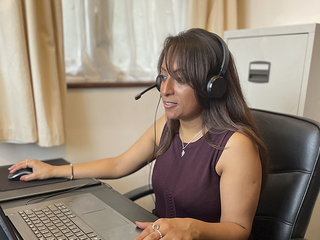Polycythaemia vera (PV) symptoms
The symptoms of polycythaemia vera (PV) are caused by over-production of blood cells, in particular, red blood cells.
What causes the symptoms of PV?
There are three main types of blood cell. Most of these are made by blood stem cells in your bone marrow, the spongy material inside some of your bones. Blood stem cells are immature cells that can develop into a range of cells with different purposes:
- Red blood cells carry oxygen from your lungs to all the cells in your body.
- White blood cells help your body fight infection.
- Platelets stick together to stop you bleeding if you have a cut or bruise.
In PV, blood stem cells produce too many red blood cells. Often, they also produce too many white bloods cells and platelets.
Over-production of blood cells makes the blood thicker than normal, making it harder for the blood to flow smoothly through your blood vessels. It’s this that causes most of the symptoms of PV. It can also cause your blood to clot too easily, which can cause serious problems.
Not everyone will have symptoms when they are diagnosed with PV. Some people are diagnosed following a blood test for something else.
Common symptoms
The symptoms of PV include:
- headaches
- confusion
- dizziness
- blurred vision
- night sweats
- itching (pruritis)
- extreme tiredness (fatigue)
- unusual bleeding such as nosebleeds, bruising easily or heavy periods
- red-looking eyes
- red-looking skin (this may be harder to see on darker skin tones)
- a swollen spleen, causing a feeling of fullness or pain after eating small amounts
- gout, causing pain in your joints.
You won’t have all the symptoms listed here, but if you have one or more that you can’t explain, talk to your GP, or your hospital team, if you have already been referred to a specialist department.
"My blood gets too thick and that can cause a stroke or heart attack. So I feel like it saved my life really, being diagnosed with this."
Alex, living with PV since 2019
Read Alex's story about the ups and downs of living with PV

Symptoms of thrombosis (blood clots)
Having blood that’s too thick can cause blood to clot too easily. This is known as thrombosis. This can be serious, so it’s important to know what to look out for. The symptoms of thrombosis will vary depending on where the clot is, but they include:
- slurred speech
- weakness on one side of the body
- drooping on one side of your face
- sudden chest pain, dizziness and feeling short of breath
- one leg or arm becoming painful, swollen and warm
- coughing up blood
- sudden blurred vision or loss of sight
- sudden pain in the stomach area, possibly with swelling and signs of jaundice (a yellowing of the eyes, and yellowish skin in people with lighter skin tones).
If you have one or more of these symptoms, it’s a medical emergency. Call 999.
Find out how treatment for PV can lower your risk of blood clots.

Worried about anything or have questions?
If you need someone to talk to, please don't hesitate to contact our Support Service by phone or email.
